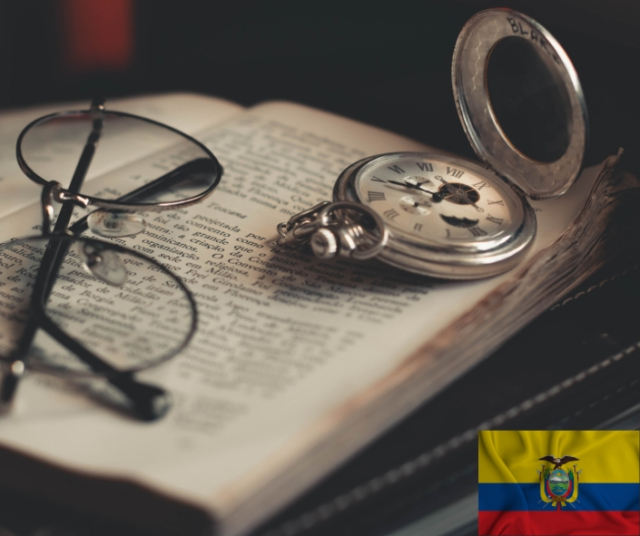Ecuadorian literature has been enriched over the years by the pens of numerous talented writers who have left an invaluable legacy in the literary history of the country and beyond its borders. In this article, we will explore some of the most prominent Ecuadorian writers, as well as their significant contributions to national and international literature.
Ecuadorian literature has flourished over the years, reflecting the complexities of the country's national identity, cultural diversity, and social challenges. From colonial times to the present day, Ecuadorian writers have captured the essence of life in Ecuador through a variety of literary genres, from poetry and novels to essays and theater. In this article, we will explore the life and work of some of the most renowned Ecuadorian writers and analyze how their contributions have influenced literature both inside and outside the country.
Juan Montalvo (1832-1889)
Juan Montalvo was an Ecuadorian essayist, novelist and politician whose work had a profound impact on the society and politics of his time. Born in Ambato in 1832, Montalvo is remembered for his sharp social and political criticism, reflected in works such as "Las catilinarias", a series of essays that denounced corruption and injustice in Ecuadorian society. Montalvo advocated freedom of thought and expression, and his fight for justice and equality made him a symbol of intellectual resistance in 19th-century Ecuador.
Juan León Mera (1832-1894)
Juan León Mera was a prolific Ecuadorian writer, known mainly for his work "Cumandá or a drama between savages", published in 1879. This novel, considered one of the first indigenous works in Latin America, tells the love story between an indigenous man and a mestiza in the Ecuadorian Amazon jungle. In addition to his work as a novelist, Mera also stood out as a poet and politician, and is remembered for having written the lyrics of the national anthem of Ecuador, whose poetry reflects love for the country and national identity.
Jorge Icaza (1906-1978)
Jorge Icaza was a prominent Ecuadorian novelist whose most famous work, "Huasipungo", published in 1934, is considered one of the masterpieces of indigenous literature in Latin America. The novel addresses the harsh living conditions of indigenous workers on Ecuadorian haciendas during the era of agrarian exploitation. Icaza denounces exploitation and social injustice in his work, and his realistic and committed style earned him recognition both nationally and internationally. In addition to "Huasipungo", Icaza wrote other important works, such as "El Chulla Romero y Flores" and "Media vida".
José de la Cuadra (1903-1941)
José de la Cuadra was a prominent Ecuadorian writer whose work is characterized by its social realism and its exploration of the complexities of rural life in Ecuador. Born in Guayaquil in 1903, de la Cuadra is remembered for his most famous story, "The Earth is Thirsty", published in 1932. This short story addresses themes such as poverty, violence and the struggle for survival in the Ecuadorian countryside, and is considered one of the best examples of social realism in Ecuadorian literature. De la Cuadra also wrote novels such as "Huasipungo" and "Pongo."
Alfredo Pareja Diezcanseco (1908-1993)
Alfredo Pareja Diezcanseco was a prolific Ecuadorian writer whose work covers various genres, including novels, essays, and historical chronicles. Born in Guayaquil in 1908, Pareja is remembered for his novel "La casa de los locos", published in 1941. This work is a social satire that criticizes the hypocrisy and corruption in Ecuadorian society of the time, and is considered one of the most important works of Ecuadorian literature of the 20th century. In addition to "La casa de los locos", Pareja wrote other significant novels such as "The Small Statures" and "La Beldaca", as well as essays and historical chronicles about Ecuadorian society.
Demetrio Aguilera Malta (1909-1981)
Demetrio Aguilera Malta was an Ecuadorian writer whose work is characterized by his poetic style and his exploration of themes such as national identity, social justice, and freedom. Born in Guayaquil in 1909, Aguilera Malta is remembered for his novel "Don Goyo", published in 1950. This work is a reflection on the human condition and the search for truth in a world full of contradictions, and is considered one of the best novels of Ecuadorian literature of the 20th century. In addition to "Don Goyo", Aguilera Malta wrote plays such as "The Fall of the Eagle", which address political and social issues of historical relevance in Ecuador.
The Ecuadorian writers mentioned are just some examples of the richness and diversity of the country's literature. Through their works, these authors have contributed significantly to national culture and identity, as well as to the Latin American literary scene in general. His legacy lives on in collective memory and continues to inspire new generations of writers and readers in Ecuador and beyond.
